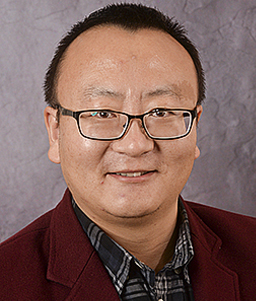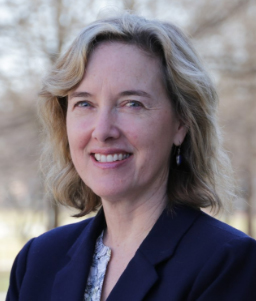The 3rd ISDE International Lectures, with the theme of "Human Mobility Analytics in the Big Data Era", was given on March 21, 2023, 8:30 - 10:00 am (EDT). Three speakers were invited to introduce the challenges of and approaches to the human mobility measurement based on big geosocial data, to share the applications of location-aware mobile device data to travel pattern analysis, and to shed light on the regularity and privacy issues in human mobility research.
Invited Speakers:
Prof. Zhenlong Li (University of South Carolina, USA)
Topic:Measuring Human Mobility with Big Geosocial Data: Challenges and Approaches
Prof. Kathleen Stewart (University of Maryland, USA)
Topic: Travel Behavior Pattern Analysis Using Passively Collected Location-aware Mobile Device Data
Prof. Song Gao (University of Wisconsin-Madison, USA)
Topic: Understanding the Regularity and Privacy Issues in Human Mobility Research
Moderator:
Prof. Xinyue Ye (Texas A&M University, USA)
Programme:
8:30-8:35 | Welcome and Introduction Moderator: Xinyue Ye (Texas A&M University, USA) |
8:35-8:55 | Topic: Measuring Human Mobility with Big Geosocial Data: Challenges and Approaches Speaker: Zhenlong Li (University of South Carolina, USA) |
8:55-9:15 | Topic: Travel Behavior Pattern Analysis Using Passively Collected Location-aware Mobile Device Data Speaker: Kathleen Stewart (University of Maryland, USA) |
9:15-9:35 | Topic: Understanding the Regularity and Privacy Issues in Human Mobility Research Speaker: Song Gao (University of Wisconsin-Madison, USA) |
9:35-10:00 | Group Photo Q&A Announcement of the 4th ISDE International Lectures |
Short Bio of Invited Speakers:

Zhenlong Li
University of South Carolina, USA
Zhenlong Li is an Associate Professor in the Department of Geography and Director of the Center for GIScience and Geospatial Big Data at the University of South Carolina. He received his B.S. from Wuhan University in 2006, and Ph.D. in Geography and Geoinformation Sciences from George Mason University in 2015. His primary research interests focus on geospatial big data analytics, high performance spatial computing, and GeoAI/CyberGIS in the area of data- and computation-intensive GIScience. Dr. Li has more than 120 peer-reviewed journal articles and book chapters that have appeared in outlets such as IJGIS, IJDE, Annals of AAG, and CaGIS. He has been PI, Co-PI, or Co-I on grants totaling over $7 million from NIH, NSF, NASA and NOAA among others. Dr. Li was named a Breakthrough Star by USC in 2020 and was selected as one of the Geospatial World 50 Rising Stars by the Geospatial Media and Communications in 2021. He served as the Chair of the AAG Cyberinfrastructure Specialty Group, Co-Chair of the Cloud Computing Group of Federation of Earth Science Information Partners (ESIP), and the Board of Director of the International Association of Chinese Professionals in Geographic Information Sciences (CPGIS).

Kathleen Stewart
University of Maryland, USA
Kathleen Stewart, is Professor in the Department of Geographical Sciences and Director of the Center for Geospatial Information Science at the University of Maryland. Her research focuses on travel behaviors and mobility where spatial data science approaches are applied in a big geospatial data context. She investigates movement and mobility for different application domains, for example, health and transportation where movement pattern and travel behavior analyses are key topics. At the University of Maryland, Dr. Stewart collaborates with researchers at the School of Public Health, the Social Data Science Center, the Advanced Research Laboratory for Intelligence and Security, and the University of Maryland School of Medicine among others. Her research is supported in part by grants from the Federal Highway Administration, National Science Foundation, and the National Institutes of Health among other organizations. She serves as a member of the Geographical and Geospatial Science Committee of the National Academies of Sciences, Engineering and Medicine. She also serves on the National Geospatial Advisory Committee (NGAC). She serves as an editorial board member for a number of leading geospatial journals and reviews regularly for conferences.

Song Gao
University of Wisconsin-Madison, USA
Song Gaois an Associate Professor in Geographic Information Science at the University of Wisconsin-Madison, where he leads the Geospatial Data Science Lab. He holds a Ph.D. degree in Geography at the University of California, Santa Barbara. His main research interests include Geospatial Data Science, GeoAI and Human Mobility. He is the (co-)author of 100+ peer-reviewed articles with 6000+ Google Scholar citations, and on the Web of Science Global Highly Cited Researchers list. He is the principal investigator of multiple research grants from the National Science Foundation, Wisconsin Alumni Research Foundation, Microsoft AI for Earth, and other industry partners. He is an Associate Editor of Annals of GIS (2018-2022) and International Journal of Geographical Information Science (2023 – Current) and also serves on the editorial boards for several international journals in GIS. Dr. Gao is the President of CPGIS, Vice Chair of the AAG Specialty Group in GIS, and the Communications Director of UCGIS. He was the recipient of ‘Waldo Tobler Young Researcher Award’ selected by the Austrian Academy of Sciences' Commission of GIScience and 2022 UCGIS Early/Mid-Career Research Award.
Short Bio of Moderator:

Xinyue Ye
Texas A&M University, USA
Xinyue Ye is an Elected Fellow of American Association of Geographers (AAG), holding Harold L. Adams Endowed Professorship in Department of Landscape Architecture & Urban Planning, Department of Geography, and Department of Multidisciplinary Engineering at Texas A&M University, USA (TAMU). He directs Center for Geospatial Sciences, Applications & Technology and Center for Housing and Urban Development at TAMU. His research focuses on geospatial artificial intelligence, geographic information system, and smart cities. Prof. Ye received AAG Regional Development and Planning Distinguished Scholar Award and Outstanding Achievement in Research Award by New Jersey Institute of Technology. He was among the top 10 young scientists named by The World Geospatial Developers Conference. His work has been funded by National Science Foundation, National Institute of Justice, Department of Commerce, Department of Energy, Department of Transportation, Department of Health and Human Services, Microsoft, and Canada Social Sciences and Humanities Research Council. Prof. Ye is Co-Editor-in-Chief of Computational Urban Science published by Springer. He is also the co-editor of Journal of Planning Education and Research, the flagship journal of Association of Collegiate Schools of Planning. According to Google Scholar Citation Global Ranking, Dr. Ye is ranked as: Urban Informatics (#7) and Spatial Econometrics (#11).
Extended Materials:
Center for GIScience and Geospatial Big Data:
Geospatial Data Science (GeoDS) Lab:
https://geography.wisc.edu/geods/
Center for Geospatial Information Science:
Center for Geospatial Sciences, Applications & Technology:

2004-2026 All Rights Reserved 京ICP备06045536号-1 京公网安备 11010802041631号